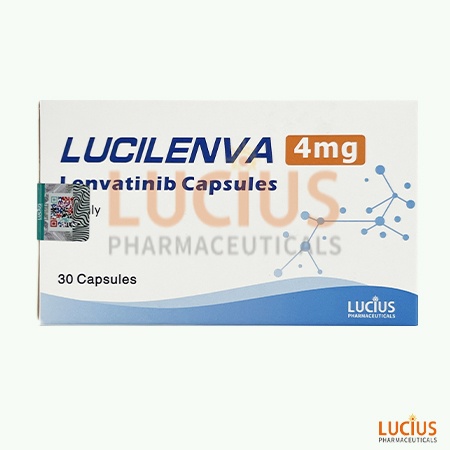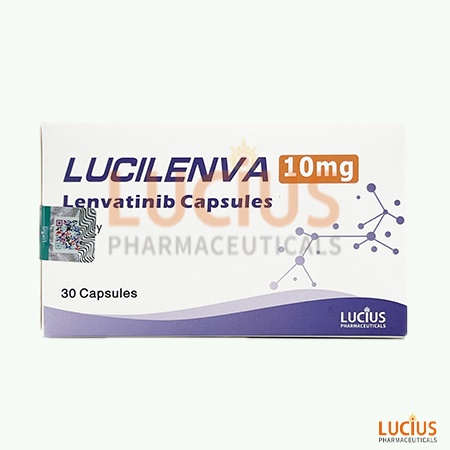



Another Name乐伐替尼,仑伐替尼,乐卫玛,Lenvima,E7080
IndicationsLenvatinib is indicated for differentiated thyroid carcinoma (DTC), renal cell carcinoma (RCC), hepatocellular carcinoma (HCC), and endometrial carcinoma (EC).
Reg No.03 L 1079/24
Inspection NO.0557-24


There are two different specifications of Lenvatinib drugs: one is a box of 30 pills, each pill is 4 milligrams, and its price is about 450 yuan;
Another option is to have 30 pills per box, but each pill is 10 milligrams, and its price is around 900 yuan.
Lenvatinib primarily acts on kinase targets including VEGFR, FGFR, PDGFRA, KIT, and RET.
Lenvatinib is an oral signal-blocking agent classified as a tyrosine kinase inhibitor (TKI).
Route and frequency of administration for Lenvatinib: Oral administration, 24 mg per day, once daily.
The dosage and administration of Mavacamten should be adjusted according to the patient’s actual condition. For specific details, patients should consult their doctors and strictly follow medical advice.
Recommended Reading: Dosage and Administration of Lenvatinib
Common adverse reactions: Hypertension, cardiac disorders, arterial thrombotic events, hepatic impairment, renal impairment, elevated urinary protein (proteinuria), etc.
Reference Article: Adverse Reactions of Lenvatinib
Lactation: It is currently unknown whether Lenvatinib is excreted in human milk. Breastfeeding is not recommended during Lenvatinib treatment and for 1 week after the last dose.
If you are pregnant or planning to become pregnant, please inform your healthcare provider. For women of childbearing potential, a pregnancy test should be performed by the healthcare provider before initiating Lenvatinib treatment. Effective contraceptive measures should be taken during Lenvatinib treatment and for 30 days after the last dose.
If you experience certain adverse reactions, your healthcare provider may need to reduce your dose of Lenvatinib, or delay or discontinue the treatment entirely.
from FDA,2024.06